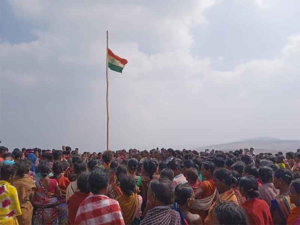Indian billionaires increased their wealth by 35% during the lockdown to ₹ 3 trillion, ranking India after U.S., China, Germany, Russia and France. Out of these, the rise in fortunes for the top 100 billionaires since the lockdown in March is enough to give every one of the 138 million poorest Indian people a cheque for ₹94,045 each, according to Oxfam’s ‘Inequality Virus Report’ released on the opening day of the World Economic Forum in Davos.
The wealth of just the top 11 billionaires during the pandemic could easily sustain the MGNREGS or the Health Ministry for the next 10 years, stated the report, which underscored the deepening inequalities due to COVID-19 where the wealthiest escaped the worst impact of the pandemic while the poor faced joblessness, starvation and death.
Mukesh Ambani, who emerged as the richest man in India and Asia, earned ₹90 crore an hour during the pandemic when around 24% of the people in the country were earning under ₹ 3,000 a month during the lockdown. The increase in his wealth alone could keep 40 crore informal workers out of poverty for at least five months, said the report.
It recommended reintroducing the wealth tax and effecting a one-time COVID-19 cess of 4% on taxable income of over ₹10 lakh to help the economy recover from the lockdown. According to its estimate, wealth tax on the nation’s 954 richest families could raise the equivalent of 1% of the GDP.
The report also delved deeper into different forms of inequities, including educational, gender and health, which meant that facilities to wash hands and maintain distance, essential to prevent the spread of Coronavirus, was impossible for a majority of the population.
Health
According to the report, only 6% of the poorest 20% have access to non-shared sources of improved sanitation, compared to 93.4 % of the top 20 %. 59.6 % of India’s population lived in a room or less, which meant that protocols necessary to prevent the spread of COVID-19 cannot be followed. While the government took steps to make COVID-19 services affordable by including them under Ayushman Bharat-PMJAY, the scheme only covered BPL (below poverty line) population leaving out the uninsured poor and the middle class.
Education
Till October, 32 crores students were hit by closure of schools, of whom 84 % resided in rural areas and 70 %attended government schools.
Oxfam India’s survey across five States said that close to 40 % of teachers in government schools feared that the prolonged school closure might lead to a third of the students not returning once schools reopened. It was estimated that out of school rates would double in a year. Dalits, Adivasis and Muslims were likely to see a higher rate of dropout. Girls were also most vulnerable as they were at risk of early and forced marriage, violence and early pregnancies, it noted.
Gender
Unemployment of women rose by 15% from a pre-lockdown level of 18 %, which could result in a loss of India’s GDP of about 8 % or ₹15 trillion. Women who were employed before the lockdown were also 23.5 percentage points less likely to be re-employed compared to men in the post lockdown phase.
(Article courtesy: The Hindu.)
❈ ❈ ❈
A report in the The Wire, “COVID-19 Sharpened Inequalities in India”, adds:
Contrary to some references to the pandemic as “the great equaliser” – since it affected people in one way or another, irrespective of their socio-economic position, the Oxfam report points out the rich, on the whole, were able to escape the worst impacts on the virus. Billionaires such as Gautam Adani, Shiv Nadar, Cyrus Poonawalla, Uday Kotak, Azim Premji, Sunil Mittal, Radhakrishan Damani, Kumar Manglam Birla and Laxmi Mittal working in sectors like coal, oil, telecom, medicines, pharmaceuticals, education and retails increased their wealth exponentially since March 2020, the report notes. On the other hand, data has shown that 170,000 people lost their jobs every hour in the month of April 2020 alone.
The economically worst hit were India’s millions of migrant workers, who were seen walking hundreds of kilometres to their homes when the lockdown first hit. Reliant on their daily wages for survival and without immediate assurances from the government that they would not be left without any assistance, they felt there was no option for them but to walk or cycle home, since all transportation services had been halted.
Noting that the informal sector had been the worst hit, the report said out of a total 12.2 crore people who lost their jobs, 75%, which accounts for 9.2 crore jobs, were lost in the informal sector. “The mass exodus on foot triggered by the sudden lockdown and the inhuman beating, disinfection and quarantine conditions the informal workers were subjected to turned a health emergency into a humanitarian crisis,” it said.
“Over 300 informal workers died due to the lockdown, with reasons ranging from starvation, suicides, exhaustion, road and rail accidents, police brutality and denial of timely medical care. The National Human Rights Commission recorded over 2,582 cases of human rights violation as early as in the month of April 2020,” the report added.




